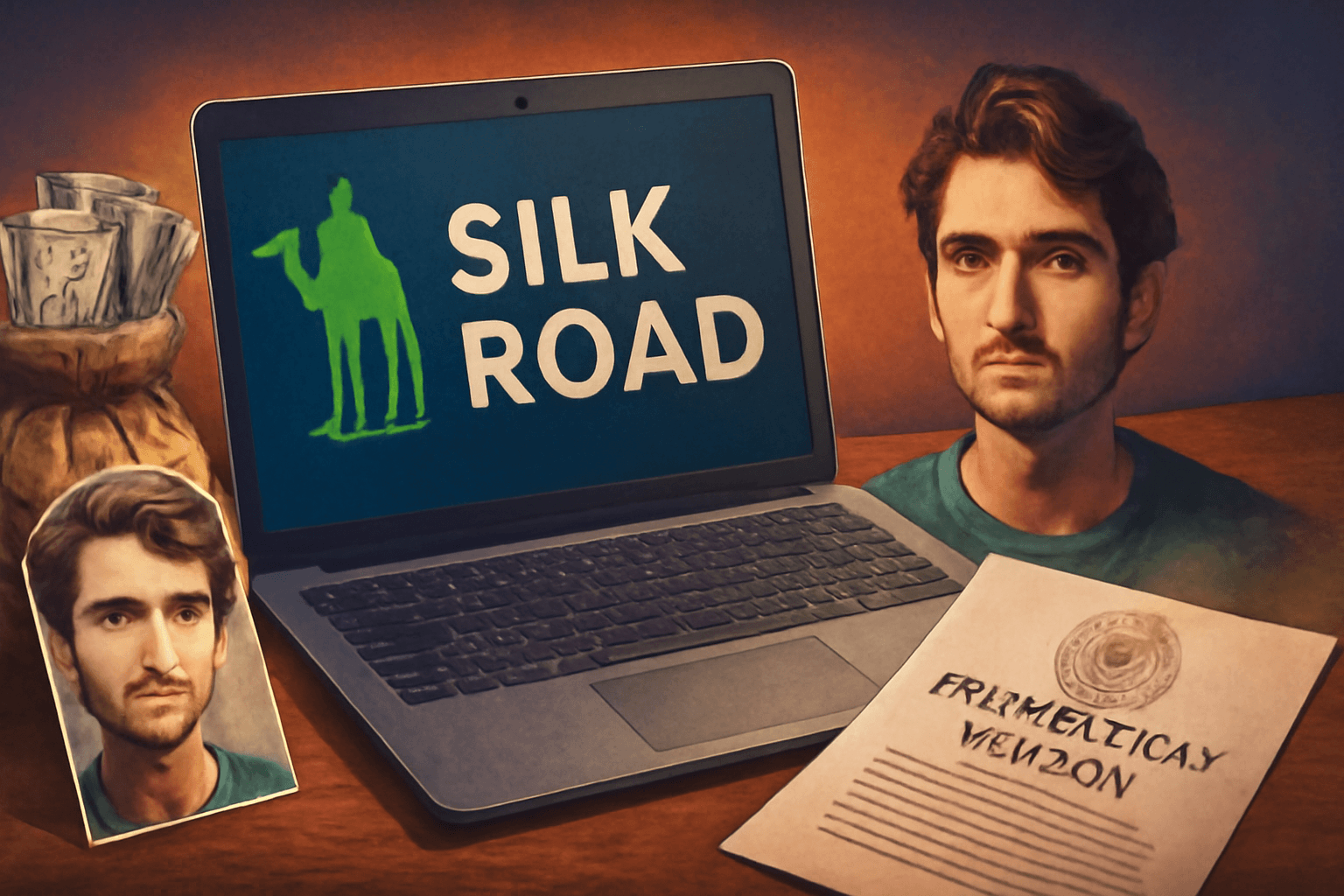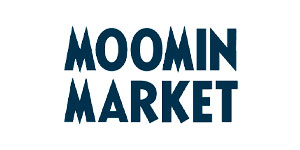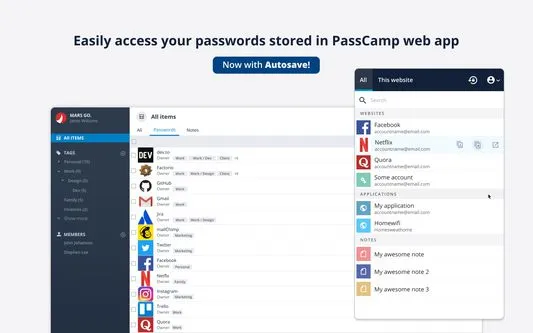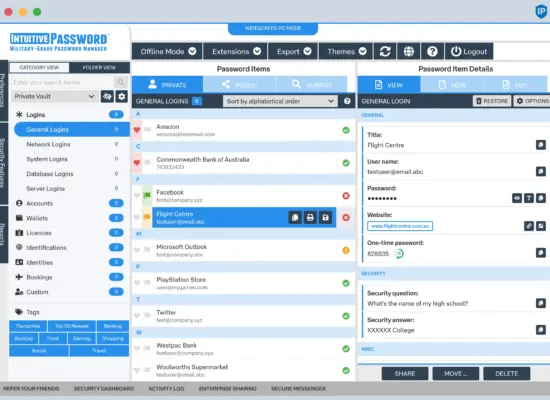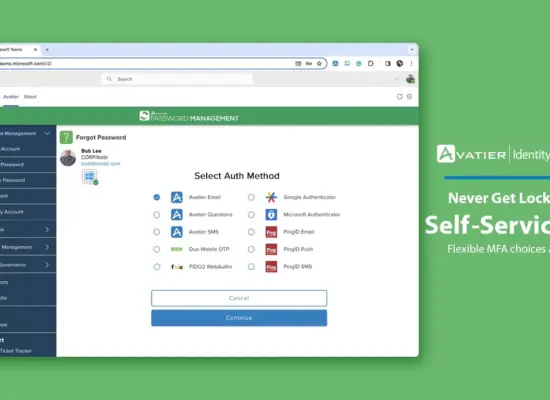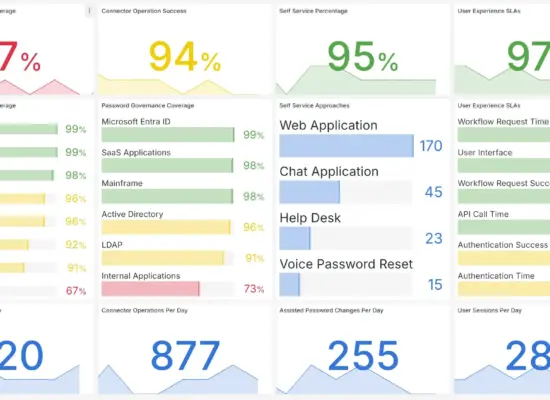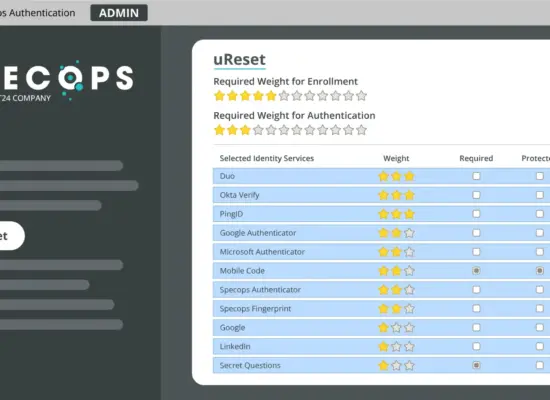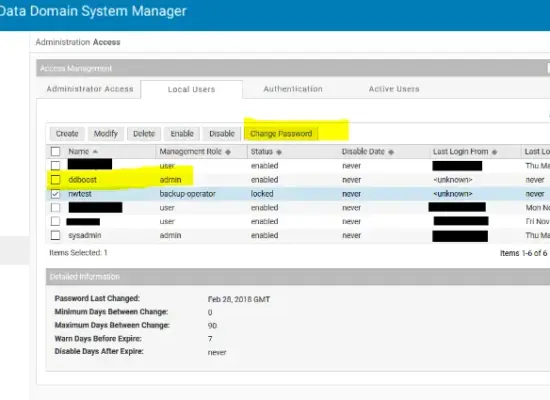Last Updated on May 14, 2025 by DarkNet
When Ross Ulbricht launched Silk Road in 2011, few could imagine the scale and controversy it would soon generate. Hidden beneath layers of encryption on the dark web, Silk Road revolutionized online trade by enabling anonymous commerce through Bitcoin, dramatically reshaping perceptions of digital freedom and privacy.
Quickly dubbed the “Amazon of illegal goods,” Silk Road became synonymous with both technological innovation and criminal controversy. Ulbricht, operating under the pseudonym “Dread Pirate Roberts,” envisioned a free market beyond government regulation—but his dream swiftly collided with international law enforcement. The marketplace’s dramatic closure in 2013 and Ulbricht’s subsequent double life sentence became symbolic of the larger struggle between online liberty and legal accountability.
Yet, over a decade later, Silk Road’s legacy remains deeply influential. It not only shaped the way governments approach online crime but also set a precedent for cryptocurrency’s widespread adoption. Ulbricht himself became a divisive figure, hailed by some as a pioneer of digital liberty, condemned by others as a facilitator of crime. His surprising presidential pardon by Donald Trump in 2025 has reignited debate, further highlighting why the Silk Road saga continues to captivate the public imagination.
The Rise of Silk Road: Origins and Vision of Ross Ulbricht
Ross Ulbricht, the architect behind Silk Road, was born on March 27, 1984, in Austin, Texas. Known as a bright student with a keen interest in economics and libertarian philosophy, Ulbricht graduated from the University of Texas at Dallas and later pursued a master’s degree in materials science and engineering at Penn State. Yet, despite his formal education, it was Ulbricht’s ideological beliefs in economic freedom, personal autonomy, and minimal governmental interference that would ultimately drive him to create one of the internet’s most controversial marketplaces.
In the early 2010s, the digital landscape was rapidly evolving. Cryptocurrencies, especially Bitcoin, had begun to demonstrate their potential as decentralized payment systems, largely untraceable and free from government control. At the same time, the Tor network—a secure, anonymous browsing platform initially developed for U.S. military communication—had gained widespread use among privacy-focused users and dissidents worldwide. The convergence of these two technologies provided an unprecedented opportunity for anonymous online commerce.
Inspired by libertarian principles, Ulbricht envisioned a digital marketplace operating entirely outside traditional economic regulations. He believed strongly in the philosophy of unrestricted trade, trusting market forces to self-regulate without governmental intervention. With this revolutionary yet contentious idea, Silk Road was born in early 2011. Named after the ancient trade route connecting East and West, Silk Road was meant to be a modern-day marketplace where goods—legal or otherwise—could be exchanged anonymously and securely.
Ulbricht, adopting the pseudonym “Dread Pirate Roberts,” launched Silk Road on the dark web, accessible exclusively via Tor. Transactions on Silk Road required Bitcoin, which assured anonymity and further insulated the platform from oversight. Initially, the marketplace offered a variety of products ranging from harmless items like books and collectibles to narcotics and digital contraband, quickly attracting attention and controversy.
By blending cutting-edge encryption technology, cryptocurrency payments, and libertarian ideology, Ulbricht fundamentally altered perceptions of what was possible—and permissible—in digital commerce. Silk Road would soon become not just a marketplace, but a powerful statement about freedom, responsibility, and the limitations of governmental control in the digital age.
Inside Silk Road: How the First Dark-Web Marketplace Worked
At its core, Silk Road functioned similarly to any standard e-commerce platform—buyers and sellers exchanged products and services online. However, what set Silk Road apart was its unprecedented level of anonymity and the types of goods available for purchase. The site operated exclusively on the dark web, accessible only via the Tor browser, designed specifically for anonymous web surfing. Tor masked users’ identities and locations by routing internet traffic through multiple encrypted layers, making tracking virtually impossible.
Central to Silk Road’s operation was Bitcoin—the pioneering cryptocurrency that allowed users to transact anonymously without banks or government interference. Buyers exchanged traditional currencies for Bitcoin, which they then transferred to the site’s built-in escrow system. Silk Road held funds securely until transactions were confirmed complete, protecting both parties and fostering trust within an inherently risky environment.
The marketplace itself offered a wide variety of products, many of which were illegal or heavily regulated in traditional markets. Goods ranged from harmless merchandise such as digital artwork and literature to illicit items including narcotics, counterfeit documents, hacking software, and stolen personal data. Narcotics quickly became Silk Road’s dominant product category, comprising roughly 70% of total sales. Users could rate vendors, much like on mainstream marketplaces, creating a surprisingly structured feedback system that helped guide purchases.
Two particularly notable incidents illustrate Silk Road’s controversial nature and operational risks:
-
The “FriendlyChemist” Incident: In 2013, a user named “FriendlyChemist” threatened to leak thousands of customer identities unless paid off. Ross Ulbricht—operating as Dread Pirate Roberts—allegedly responded by commissioning a hitman to eliminate this threat, though no murder ever occurred, and the hired assassin was later revealed to be an undercover agent.
-
Curtis Green’s Arrest: Silk Road moderator Curtis Green was arrested by the FBI in early 2013. Agents staged his death to lure Ulbricht into believing his employee had betrayed him. This event played a significant role in the eventual downfall of Silk Road, highlighting vulnerabilities despite extensive security measures.
Despite robust anonymity protocols and innovative cryptocurrency transactions, these events underscored that Silk Road was far from immune to infiltration by law enforcement. Nevertheless, its operations significantly influenced the way digital privacy, anonymous transactions, and cryptocurrency are perceived and utilized today.
Boom and Backlash: The Societal Impact of Silk Road
Silk Road experienced explosive growth shortly after its launch, quickly becoming the most famous—and infamous—marketplace on the dark web. Between 2011 and its closure in 2013, Silk Road facilitated approximately 1.2 million transactions, generating over $1.2 billion in sales, according to FBI estimates. At its peak, the marketplace served over 100,000 buyers and sellers globally, establishing itself not just as a technological curiosity but as a significant underground economic force.
This swift rise to prominence ignited intense public and governmental debate. Advocates hailed Silk Road as an emblem of internet freedom, praising its defiance of traditional regulatory constraints and its promotion of privacy rights. Many users viewed Ross Ulbricht not as a criminal, but as a modern libertarian hero who challenged governmental control and censorship through innovative technology.
Conversely, law enforcement agencies worldwide quickly identified Silk Road as a severe threat. Authorities argued that the marketplace encouraged illegal activities, particularly drug trafficking, fueling addiction and violence in communities around the globe. Silk Road’s notoriety intensified international efforts to police the dark web, prompting sophisticated investigations by the FBI, DEA, and Homeland Security.
Culturally, Silk Road left an enduring mark, profoundly influencing perceptions of online privacy, cryptocurrencies, and government authority in digital spaces. Mainstream awareness of Bitcoin surged dramatically due to the site’s high-profile transactions, indirectly accelerating the cryptocurrency’s acceptance in legitimate markets. Additionally, Silk Road became a popular reference in media, films, books, and television series, transforming Ross Ulbricht into a figure of mythic proportions—both villainized and romanticized.
The closure of Silk Road intensified the broader societal discussion about internet governance, personal liberty, and ethical responsibility online. Its legacy continues to shape global conversations around digital privacy, regulatory frameworks, and the enduring tension between freedom and security in the internet age.
The Downfall: Ross Ulbricht’s Arrest and Trial
The meteoric rise of Silk Road abruptly ended on October 1, 2013, when FBI agents dramatically arrested Ross Ulbricht in the science fiction section of a public library in San Francisco. Ulbricht, unsuspecting and logged into the Silk Road administrator panel at the time, was quickly identified as the elusive mastermind, “Dread Pirate Roberts.”
The arrest capped a lengthy investigation involving multiple federal agencies, including the FBI, DEA, and IRS. Undercover agents had infiltrated Silk Road, carefully gathering digital evidence. Critical mistakes, such as Ulbricht using his real email address in early posts advertising Silk Road and careless digital trails, ultimately led authorities straight to him.
The trial of Ross Ulbricht, held in early 2015 in a Manhattan federal court, was one of the most closely watched cybercrime cases in history. Prosecutors charged Ulbricht with multiple felonies, including conspiracy to commit drug trafficking, money laundering, computer hacking, and facilitating a criminal enterprise. Central to the prosecution’s case were extensive digital records, chat logs, and financial transactions linking Ulbricht directly to Silk Road operations.
Ulbricht’s defense team argued vehemently that he had created Silk Road as a libertarian experiment, never intending to facilitate harm. They challenged the legitimacy of the FBI’s investigative methods, alleging constitutional violations, including illegal searches and seizures of digital data. Additionally, they questioned the authenticity of evidence and claimed that Ulbricht had stepped away from active involvement long before his arrest, implying other operators took control afterward.
The trial exposed numerous controversies, including allegations that Ulbricht had solicited murder-for-hire plots against Silk Road adversaries. Though these charges were ultimately dismissed and never fully substantiated, they dramatically influenced public perception and judicial attitudes.
On May 29, 2015, Ross Ulbricht was sentenced to two consecutive life sentences without the possibility of parole, alongside additional sentences totaling 40 years. This severe punishment sparked immediate and passionate reactions. Privacy advocates and libertarians condemned the sentencing as excessive and politically motivated, while prosecutors and law enforcement officials celebrated it as a powerful precedent against online criminal enterprises.
Ulbricht’s harsh sentencing also ignited significant public debate over justice and proportionality, galvanizing support from activists and public figures who argued for clemency. The case’s lasting impact underscored profound tensions between individual liberty, government oversight, and accountability in the digital age.
After Silk Road: Successors, Competitors, and the Marketplace Legacy
The closure of Silk Road in 2013 marked a pivotal moment in the evolution of darknet marketplaces. While it was the first to combine anonymity tools like Tor with cryptocurrencies to facilitate illicit trade, its demise paved the way for a new generation of platforms. Among these, Abacus Market and Nexus Market have emerged as prominent successors, each building upon Silk Road’s foundation while introducing their own innovations.
Abacus Market: Scaling the Darknet Economy
Launched in 2021, Abacus Market has rapidly become a dominant force in the darknet ecosystem. As of 2025, it boasts over 150,000 listings and a network of more than 10,000 active vendors .
Key Features:
-
Enhanced Security: Utilizes PGP encryption, two-factor authentication, and a multi-signature escrow system to ensure transaction safety .
-
Cryptocurrency Support: Accepts both Bitcoin and Monero, catering to users seeking varying levels of transaction anonymity .
-
User Education: Offers free courses on cryptocurrency usage and darknet trading, aiming to educate users on secure practices .
Abacus Market’s emphasis on security and user education reflects a maturation of darknet marketplaces, focusing on building trust and reliability within its community.
Nexus Market: Prioritizing User Experience and Security
Emerging in late 2023, Nexus Market has quickly gained a reputation for its modern interface and robust security measures. With over 20,000 products and 2,500 active listings, it serves a broad user base seeking a streamlined darknet shopping experience .
Key Features:
-
Custom-Built Platform: Developed from scratch to avoid vulnerabilities associated with generic marketplace scripts .
-
Advanced Security Protocols: Implements multi-signature escrow, PGP encryption, and DDoS protection to safeguard user transactions .
-
Community Engagement: Hosts an active forum in multiple languages, fostering a sense of community and shared knowledge among users .
Nexus Market’s focus on user experience and community engagement signifies a shift towards more user-centric darknet platforms.
Silk Road’s Enduring Legacy
Despite the advancements of successors like Abacus and Nexus, Silk Road remains uniquely notable for several reasons:
-
Pioneering Model: It was the first to successfully integrate Tor and Bitcoin for anonymous online trade, setting a precedent for future marketplaces.
-
Ideological Foundation: Founded on libertarian principles, it sparked global debates on internet freedom, privacy, and the role of government in digital spaces.
-
Cultural Impact: Silk Road’s story has permeated mainstream media, influencing public perception and discourse around darknet activities.
While modern marketplaces have introduced enhanced security features and broader product offerings, Silk Road’s historical significance and cultural impact continue to resonate, underscoring its role as a catalyst in the evolution of the darknet marketplace landscape.
Navigating Risks: Lessons from the Silk Road
The story of Silk Road highlights not only the potential of dark-web marketplaces but also the significant risks and ethical dilemmas they present. While these platforms offer anonymity and access to a wide array of goods and services, participation carries serious legal, personal, and security-related consequences that users must fully understand.
Common Risks and Challenges
-
Legal Exposure: Engaging in transactions on dark-web marketplaces often involves purchasing or selling illegal goods such as narcotics, counterfeit documents, or hacking tools. Even browsing these platforms without transacting can raise suspicion. Arrests and prosecutions tied to dark-web activity have become increasingly common, with law enforcement agencies worldwide dedicating substantial resources to undercover operations and forensic tracking.
-
Scams and Fraud: Without regulatory oversight, scams are widespread. Sellers may take payments without delivering products, and phishing sites that mimic legitimate marketplaces can steal funds and sensitive information.
-
Loss of Anonymity: Despite the use of Tor and cryptocurrencies, users are never completely immune to de-anonymization. Missteps like reusing passwords, improperly configured PGP encryption, or accessing the dark web without additional privacy safeguards (such as a VPN) can expose identities.
-
Malware and Cyber Threats: Downloading files or engaging with malicious vendors can lead to infections with ransomware, keyloggers, or spyware, compromising personal devices and sensitive data.
-
Moral and Ethical Dilemmas: Transactions on dark-web marketplaces often contribute to illegal industries, such as drug trafficking and cybercrime, raising serious ethical questions about participation and its broader societal impact.
Practical Safety Recommendations
-
Strictly Limit Exposure: Only use dark-web platforms if absolutely necessary and with a full understanding of the risks. Casual browsing can invite legal scrutiny.
-
Prioritize Digital Security:
-
Always use a reputable VPN in addition to the Tor browser.
-
Practice rigorous PGP encryption for all communications.
-
Maintain strict operational security (OpSec) by separating darknet activities from personal identities and devices.
-
-
Use Secure Payment Practices:
-
Rely on privacy-focused cryptocurrencies like Monero when possible.
-
Utilize multi-signature escrow services to minimize the risk of financial loss.
-
-
Verify Everything:
-
Double-check links and marketplace authenticity before interacting.
-
Use trusted forums to vet vendors and services.
-
-
Understand Legal Consequences:
-
Be aware that authorities treat participation in illegal online trade as a serious crime.
-
Penalties may include lengthy prison sentences, substantial fines, and asset seizures—even for first-time offenders.
-
-
Consider the Ethical Implications:
-
Reflect on how your actions impact broader societal issues, including public health, cybersecurity, and global crime networks.
-
A Final Caution
While technological tools can enhance anonymity, they are not foolproof. Law enforcement’s increasing sophistication in tracking and dismantling darknet operations makes any involvement fraught with risk. The fall of Silk Road and the severe sentencing of Ross Ulbricht serve as powerful reminders: navigating the dark web is neither as safe nor as anonymous as it may seem, and the personal, legal, and ethical stakes are higher than ever.
Freedom at Last: Ross Ulbricht’s Presidential Pardon by Donald Trump in 2025
In a move that stunned political observers and reignited fierce public debate, President Donald Trump issued a full pardon to Ross Ulbricht in March 2025. The decision, announced during a highly publicized rally in Florida, marked a dramatic turn in one of the most controversial criminal cases of the digital age.
Trump cited several reasons for the pardon. He emphasized Ulbricht’s nonviolent offenses, the disproportionate nature of his two consecutive life sentences, and the growing national conversation around criminal justice reform. “Ross Ulbricht has served more than a decade behind bars for mistakes he made as a young man,” Trump declared. “It’s time to recognize that excessive punishment serves no justice. Everyone deserves a second chance.”
The pardon followed years of persistent advocacy from civil liberties groups, cryptocurrency communities, libertarian organizations, and public figures who argued that Ulbricht’s sentencing was unjust and politically motivated. High-profile supporters, including tech entrepreneurs and legal reform activists, applauded the decision, framing it as a victory for fairness and proportionality.
However, not everyone agreed. Law enforcement officials and some policymakers criticized the pardon, warning that it could send the wrong message about the seriousness of cybercrime and the consequences of facilitating illegal activity on a massive scale. Victims’ rights groups also voiced concerns, arguing that the societal harm enabled by Silk Road should not be minimized.
Since his release, Ross Ulbricht has maintained a low public profile, focusing on rebuilding his life outside prison walls. He has dedicated himself to criminal justice reform advocacy, speaking at select conferences (virtually and in person) about the dangers of mass incarceration and the importance of privacy rights in the digital era. Ulbricht has also announced plans to publish a memoir detailing his experiences, both as the creator of Silk Road and as a symbol in the evolving debate over freedom and accountability in the internet age.
For many, Ross Ulbricht’s pardon closes one chapter of a landmark story—but it leaves lasting questions about justice, technology, and the meaning of true freedom in a rapidly changing world.
Why Silk Road Still Matters Today
Silk Road was more than just a dark-web marketplace; it was a bold experiment that challenged the limits of technology, privacy, and government authority. Ross Ulbricht’s vision of a decentralized, anonymous marketplace pushed society to confront uncomfortable questions about freedom, personal responsibility, and the ethical boundaries of innovation.
More than a decade after its fall, Silk Road’s influence continues to ripple across the digital world. It accelerated the mainstream adoption of cryptocurrencies, shaped global cybersecurity policies, and ignited lasting debates about digital privacy and state surveillance. Ulbricht’s story—marked by ambition, idealism, and tragedy—serves as both a cautionary tale and a catalyst for critical reflection.
As technology advances and society grapples with new forms of online freedom and control, the legacy of Silk Road remains a powerful reminder: innovation without foresight can have profound consequences, but it also has the potential to inspire change. The questions Silk Road raised are more relevant than ever—and how we answer them will help define the future of the digital age.





